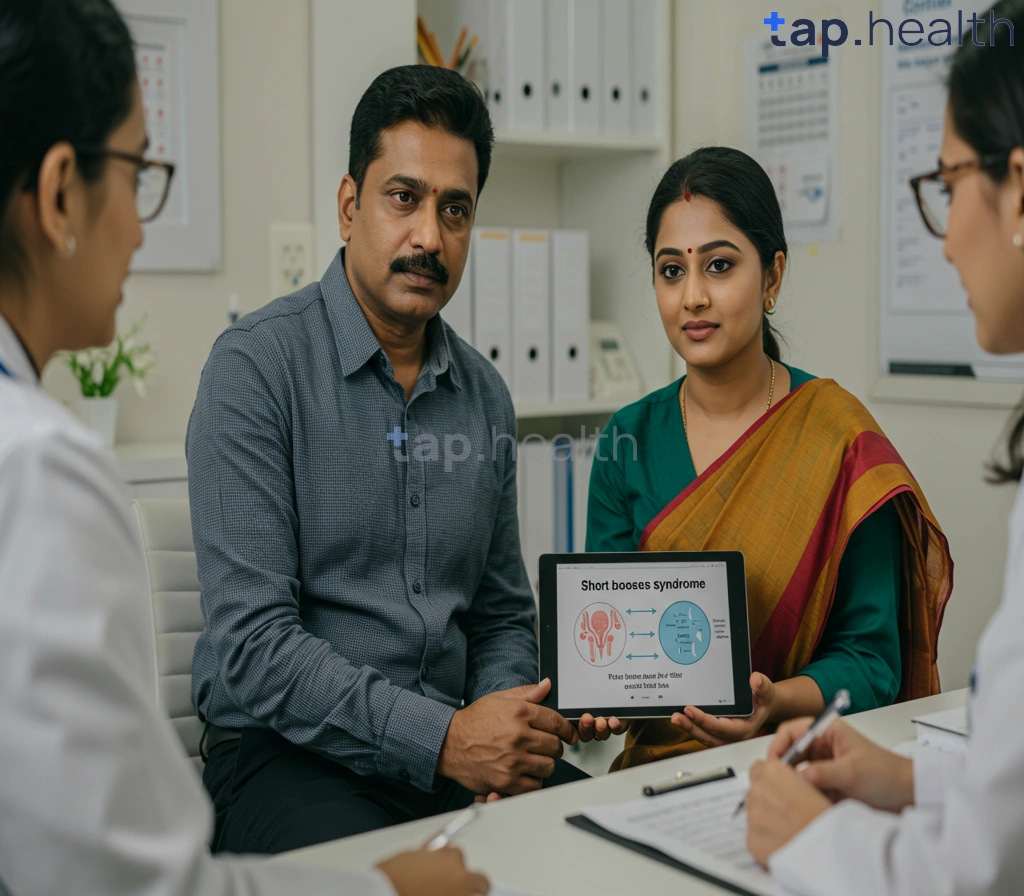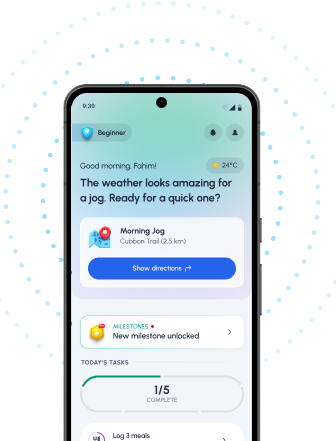Table of Contents
- Conquer Diabetes: Fitness Strategies for Success
- Nutrition for Diabetes: Your Guide to Healthy Eating
- Diabetes Management: Balancing Diet and Exercise
- Best Fitness & Nutrition Plans for Diabetes Control
- Recipes & Workouts: Your Diabetes Wellness Journey
- Frequently Asked Questions
- References
Living with diabetes can feel like an uphill battle, but what if I told you it’s a battle you can conquer? This blog, Conquer Diabetes: Fitness & Nutrition Strategies for a Healthier Life, is your guide to reclaiming your health and well-being. We’ll explore practical, evidence-based strategies to manage your blood sugar levels, improve your energy, and live a more fulfilling life. Forget restrictive diets and grueling workouts; we’ll focus on sustainable lifestyle changes you can actually stick with. Ready to take control of your diabetes and feel amazing? Let’s get started!
Conquer Diabetes: Fitness Strategies for Success
Diabetes affects a significant portion of the population, with 61% of those diagnosed falling between the ages of 20 and 64, a crucial working age group in India and other tropical countries. Managing this condition effectively requires a holistic approach, and fitness plays a vital role. Regular physical activity is not just about weight management; it improves insulin sensitivity, crucial for both type 1 and type 2 diabetes.
Tailored Exercise for Tropical Climates
The heat and humidity characteristic of many Indian and tropical regions require careful consideration when planning your fitness routine. Avoid strenuous activity during the hottest parts of the day. Early mornings or evenings offer more comfortable temperatures for exercising. Consider activities like swimming, yoga, or brisk walking, which are less demanding in hot weather. Remember to stay hydrated by drinking plenty of water before, during, and after your workout.
Finding the Right Fitness Plan
Choosing an activity you enjoy is key to long-term adherence. Whether it’s a team sport, individual exercise, or even daily walks, consistency is more important than intensity, especially when starting. Start slowly and gradually increase the duration and intensity of your workouts. Consult your doctor or a certified diabetes educator to create a personalized fitness plan that suits your age, health condition, and lifestyle, accounting for the specific challenges of tropical climates. They can also provide guidance on safe and effective exercise options, especially for the older demographic, where 39% of those with diabetes are aged 65+. For more advice on managing diabetes as you age, check out our article, Managing Diabetes as You Age: Challenges and Solutions.
Building a Sustainable Routine
Incorporating fitness into your daily life is crucial. This might mean taking the stairs instead of the elevator, walking or cycling instead of driving short distances, or even incorporating short bursts of activity throughout the day. Remember, every little bit helps in managing your blood sugar levels and improving your overall health and well-being. Small, consistent changes lead to significant long-term improvements. Find an exercise buddy for motivation and support, creating a community to help you stay on track. For additional simple tips, see our guide: 10 Proven Tips to Effectively Manage Diabetes | Simple Guide.
Nutrition for Diabetes: Your Guide to Healthy Eating
Managing diabetes in India and other tropical countries requires a tailored approach to nutrition. Understanding carbohydrate intake is crucial. Research suggests that aiming for 45–60 grams of carbohydrates per meal is a good starting point for many, though individual needs vary significantly. This isn’t a one-size-fits-all solution; it’s essential to consult a doctor or registered dietitian to determine your personalized carbohydrate target based on your specific health status, activity level, and other individual factors.
Prioritizing Whole Grains and Fiber
Instead of refined carbohydrates like white rice and bread, common staples in many Indian and tropical diets, focus on incorporating whole grains such as brown rice, millets (ragi, bajra, jowar), and whole-wheat roti. These provide sustained energy release and are rich in fiber, which helps regulate blood sugar levels. Increase your intake of fruits and vegetables, especially those abundant in these regions like leafy greens, citrus fruits, and various legumes. For more ideas on excellent food choices, check out 20 Best Foods for People with Diabetes – Tap Health.
Managing Portion Sizes and Meal Timing
Portion control is key. Even healthy carbohydrates contribute to elevated blood sugar if consumed in excess. Smaller, more frequent meals can be beneficial for managing blood sugar spikes. Consider incorporating traditional Indian practices like mindful eating, savouring each bite, and eating slowly, to aid digestion and enhance satiety. This helps prevent overeating.
Incorporating Regional Superfoods
Many traditional foods in India and tropical countries offer excellent nutritional benefits for diabetes management. Include spices like turmeric and cinnamon known for their anti-inflammatory properties and potential blood sugar-regulating effects. Incorporate bitter gourd (karela), a common vegetable in many South Asian countries, which is known for its blood sugar-lowering capabilities. Remember to always consult with a healthcare professional before making significant dietary changes.
Seeking Expert Guidance
Ultimately, a personalized dietary plan is essential for effective diabetes management. Consult a registered dietitian or healthcare provider experienced in managing diabetes within the context of Indian and tropical diets. They can help you create a meal plan that considers your individual needs, preferences, and cultural context. They will be able to advise you on the appropriate carbohydrate intake for your specific situation and guide you on making sustainable lifestyle changes. While diet is crucial, remember to also research the safe and effective use of supplements; Safe and Effective Dietary Supplements for Diabetes Care can offer additional information.
Diabetes Management: Balancing Diet and Exercise
Diabetes significantly impacts health, increasing the risk of serious complications like kidney disease. Nearly 30% of people with diabetes develop diabetic nephropathy, highlighting the crucial need for proactive management. In Indian and tropical countries, where dietary habits and lifestyles can be particularly challenging, a balanced approach to diet and exercise is essential. This means understanding your body’s unique needs and tailoring a plan that works for you.
Dietary Strategies for Diabetes Management
A diet rich in fresh fruits, vegetables, and whole grains is paramount. Focus on foods with a low glycemic index (GI), which means they release sugar into the bloodstream more slowly. In many Indian and tropical regions, this translates to incorporating more lentils, beans, and spices known for their blood sugar-regulating properties. Limit processed foods, sugary drinks, and refined carbohydrates common in many processed foods. Portion control is also vital; even healthy foods can contribute to high blood sugar if eaten in excess.
Exercise: A Cornerstone of Diabetes Management
Regular physical activity is crucial for managing blood sugar levels and improving overall health. Aim for at least 150 minutes of moderate-intensity aerobic exercise per week. This could include brisk walking, cycling, or swimming – activities easily adaptable to various climates and lifestyles prevalent in Indian and tropical countries. Incorporating strength training exercises two or three times a week is also beneficial for building muscle mass, which helps regulate blood sugar. For more detailed information on the importance of exercise, check out Why Regular Exercise is Essential for Diabetes Management.
Seeking Support and Guidance
Managing diabetes effectively requires a holistic approach. Consult a healthcare professional or a certified diabetes educator for personalized guidance. They can help you develop a tailored diet and exercise plan considering your specific needs and the prevalent dietary patterns in your region. Remember, consistent effort and support are key to conquering diabetes and living a healthier, longer life. For additional tips on effective diabetes management, you might find 10 Proven Tips for Effective Diabetes Management helpful.
Best Fitness & Nutrition Plans for Diabetes Control
Managing diabetes effectively requires a holistic approach focusing on both fitness and nutrition. Up to 80% of Type 2 diabetes cases can be delayed or prevented through lifestyle modifications, making it crucial to adopt sustainable strategies. This is particularly important in Indian and tropical countries where dietary habits and lifestyles can significantly impact diabetes risk.
Nutrition Strategies for Diabetes Management in Tropical Climates
Prioritizing a balanced diet rich in fiber, lean protein, and healthy fats is paramount. In India and other tropical regions, incorporating locally sourced fruits and vegetables like bitter gourd, drumstick, and fenugreek, known for their blood sugar-regulating properties, is beneficial. Reduce your intake of refined carbohydrates, sugary drinks, and processed foods. Focus on whole grains like brown rice and millets, which are readily available and culturally relevant in the region. Regular blood sugar monitoring is essential to track progress and adjust dietary choices accordingly. For more specific dietary recommendations, check out our guide on Diet Chart for Diabetic Patients to Control Diabetes.
Fitness Plans Tailored to Tropical Environments
Regular physical activity is crucial for effective diabetes management. Consider activities appropriate for the tropical climate, such as early morning or evening walks, yoga, or swimming. Aim for at least 150 minutes of moderate-intensity aerobic exercise per week. Incorporating strength training exercises two to three times a week helps build muscle mass, improving insulin sensitivity. Remember to stay hydrated, especially during warmer months. Consult a healthcare professional or certified fitness trainer to design a personalized fitness plan that aligns with your health status and lifestyle. If weight loss is a goal alongside diabetes management, you might find our blog on How to Lose Weight with Diabetes Diet Plan helpful.
Taking Control of Your Health
Adopting these fitness and nutrition strategies empowers you to actively manage your diabetes and improve your overall health. Remember, consistency is key. Start small, gradually incorporating these changes into your daily routine. Seek support from healthcare professionals, dieticians, and diabetes support groups available in your community for personalized guidance and ongoing support in your diabetes management journey.
Recipes & Workouts: Your Diabetes Wellness Journey
Nourishing Your Body, Indian Style
Managing diabetes in tropical climates like those found across India requires a tailored approach. Focus on fresh, seasonal produce abundant in these regions, incorporating spices known for their blood sugar regulating properties like turmeric and cinnamon. Think vibrant vegetable curries with minimal oil, lentil-based soups (dal), and whole-grain rotis. These traditional dishes, when prepared mindfully, can be incredibly beneficial for blood sugar control. Remember to prioritize portion control to manage carbohydrate intake effectively. For more ideas on creating delicious and healthy meals, check out our blog on Creating Diabetes-Friendly Dishes for the Holidays.
Fitness for a Tropical Climate
Exercising in hot and humid weather presents unique challenges. Prioritize early morning or late evening workouts to avoid the peak heat. Choose activities that suit the climate, like yoga, swimming, or brisk walking in shaded areas. Aim for at least 30 minutes of moderate-intensity exercise most days of the week. Remember to stay hydrated by drinking plenty of water before, during, and after your workout.
Heart Health: A Crucial Component
It’s crucial to understand that women with diabetes face a significantly higher risk of heart disease – 40% greater than men with diabetes. Therefore, incorporating heart-healthy practices into your routine is paramount. This includes maintaining a healthy weight, managing blood pressure and cholesterol levels, and incorporating regular cardiovascular exercise. Prioritizing heart health is an essential element of your overall diabetes management plan.
Taking Control: Your Next Steps
Start small, making gradual changes to your diet and exercise routine. Consult a doctor or registered dietitian for personalized guidance tailored to your specific needs and regional context. Remember, consistent effort and a holistic approach are key to conquering diabetes and living a healthier, longer life. The journey to wellness is a marathon, not a sprint – celebrate every milestone along the way! And if you’re planning any travel, be sure to read our tips on Traveling with Diabetes: Essential Tips for a Safe & Healthy Journey to ensure a smooth and healthy trip.
Frequently Asked Questions on Fitness & Nutrition Strategies for a Healthier Life
Q1. How can I adapt my diet to manage diabetes in a hot climate?
Focus on whole grains, fruits, vegetables, and portion control. Minimize refined carbs and processed foods. Incorporate traditional, local foods and spices.
Q2. What type of exercise is best for managing diabetes in a tropical climate?
Prioritize at least 150 minutes of moderate-intensity aerobic exercise weekly, along with strength training. Choose activities like yoga, swimming, or walking during hotter periods.
Q3. Are there specific challenges to managing diabetes in tropical climates?
Yes, the heat can make exercise more difficult. There’s also an increased risk of complications like diabetic nephropathy and heart disease, particularly for women.
Q4. How can I create a personalized diabetes management plan?
Work with a healthcare professional to develop a plan tailored to your age, health status, and lifestyle. This plan should address both diet and exercise.
Q5. What is crucial for long-term diabetes management success?
Consistent effort, a strong support network, and regular monitoring of your health are essential for long-term success.
References
- A Practical Guide to Integrated Type 2 Diabetes Care: https://www.hse.ie/eng/services/list/2/primarycare/east-coast-diabetes-service/management-of-type-2-diabetes/diabetes-and-pregnancy/icgp-guide-to-integrated-type-2.pdf
- Your Guide to Diabetes: Type 1 and Type 2: https://www.niddk.nih.gov/-/media/Files/Diabetes/YourGuide2Diabetes_508.pdf




